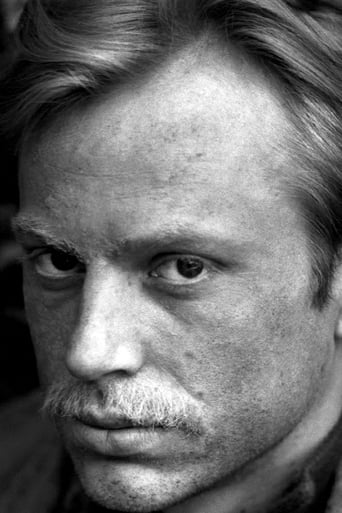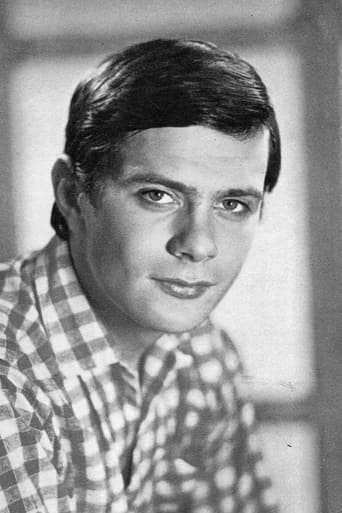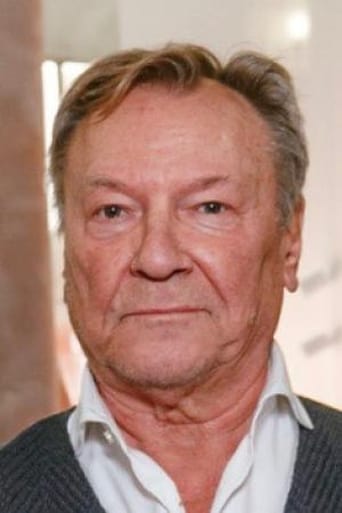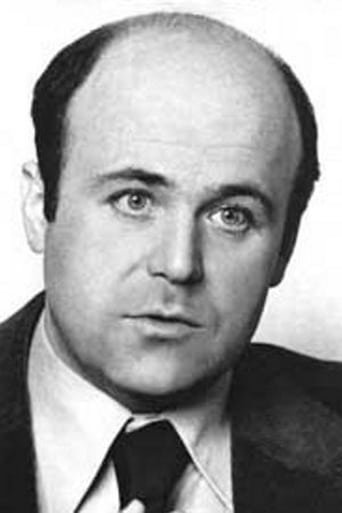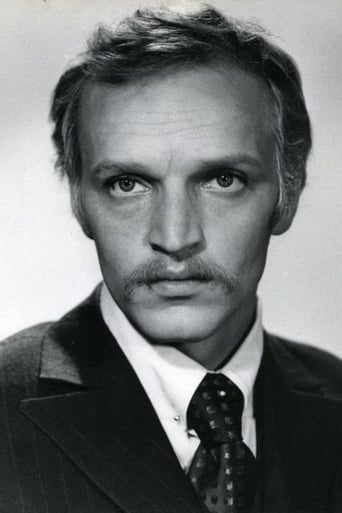Laikals
The greatest movie ever made..!
CommentsXp
Best movie ever!
InformationRap
This is one of the few movies I've ever seen where the whole audience broke into spontaneous, loud applause a third of the way in.
Armand
a Nikita Mikhalkov. with each of elements who defines his work - humor, heroism, sacrifice, justice, melancholic crumbs. a kind of Eastern on the young Soviet Union construction. but out of political circle. because it is only a story. about duty, trust, friendship and profound truth. and not that bricks are fundamental but the manner to present it. with subtle irony, delicacy and a fine Russian style. a film about justice and a hero with has not ambition to be more than a common man. an interesting performance and few splendid images. and special atmosphere. is it enough ? is it too much ? it is just a pure Mikhalkov movie. ant this fact is only essential.
Joe M
At Home Among Strangers, a Stranger Among his Own is a rollicking action and adventure film that nonetheless calls attention to deeply important themes in Russian history. Set directly after the Russian Civil War, the film looks and feels very much like an American Western, embodying motifs of greed, justice, honor, and betrayal. In the film, a shipment of gold being sent to Moscow for the purchase of food supplies is intercepted by a band of train robbers, who are themselves infiltrated by a Red veteran–accused of trying to steal the gold–out to see justice done and clear his name, and by the murderous villain who framed him. Meanwhile, the local Cheka attempts to solve the crime, leading to numerous chases and gunfights. Along with the action and suspense that drive the film's plot, At Home Among Strangers explores the challenges in Russia following the Red victory over the Whites. After the war, an entirely new struggle of rebuilding a divided country begins. The film showcases victorious but overwhelmed reds, defeated but still greedy Whites, and bandits surviving however they can, bearing no political or ideological affiliation. The chairman of the Cheka embodies the struggle of uniting a country made up of such disparate factions; he struggles to do everything that must be done to transition from wartime to socialist peace. Likewise, a former cavalry officer grapples with settling finances, doing his part for peacetime when the battlefield is all he knows. Finally, demonstrating the fundamental divisions within Russian society, the hero Shilov struggles to retain the trust of his fellows, who know that his brother fought for the White army. Stylistically, this "ostern" pays homage not only to the popular American cinema it emulates, but also to previous triumphs of Russian film. A scene in which machine guns are fired from atop cliffs at the water below recalls the final minutes of the Vasilyev Brothers' Chapaev, and some scenes in the movie, like flashes of comrades-in-arms celebrating their victory amid feelings of betrayal, and an image of a wagon tumbling down a hill as the exhausted Shilov makes his way down a similar decline to his waiting comrades, are unmistakable nods to the montage style made famous by Eisenstein and his contemporaries. When the gold is finally returned and old friends regain their mutual trust, shots of the men celebrating the end of the war are interspersed with those of them celebrating the safe return of their valuables. Ironically, their glee over the gold is matched only by the joy they had taken in their victory over such material possessions, and the superimposition serves to remind audiences that now, even amid all their struggles, wealth and camaraderie go hand in hand, and that hard-earned gains are for the benefit of all.
nephihaha
I'm very fond of this film, albeit with some misgivings about its one sided version of history (see later). It is basically a film about a group of friends who have just been demobbed from the Russian Civil War, and who are trying to get themselves back into civilian life, when one of them is framed for a gold robbery, and has to fight to prove his innocence.Like many Soviet films of the time, it switches from colour to black and white at the drop of a hat, but in this film that works quite well. The music has a cheesy 1970s charm to it, and it reminds me of "Butch Cassidy and the Sundance Kid" in a positive way. In fact, this film reminds me of "Butch Cassidy" in more ways than one. They both have the same feeling of sad nostalgia to them, and friendship.I count myself lucky to have seen it in the cinema, since it is hardly ever shown in this part of the world. The action sequences are excellent, with the exception of the assault on the bandits' camp, which we don't see at all.Of course, the one thing I am uncomfortable with is the revision of history in the film and the political aspects. At times, the film lards you with Communist propaganda, and completely ignores the fact that the famines in the Soviet Union at the time were partly because of the government. The Cheka is presented as an entirely benevolent force (we know from the Soviets' own records that it was often brutal and barbaric, and arrested innocent people.). There is a bit of stereotyping in the film as well - one of the Muslim characters is portrayed as a complete idiot.However, if you're willing NOT to let that get in the way, it is a brilliant film. If you get hold of the DVD, I recommend watching it with English subtitles, rather than with the English dubbing (I have watched both versions), because that version is much better.
denis888
There are very few films about this time in Russia - 1917 - 1922, which have no clear propaganda smack. This film, albeit made in the stuffy Soviet times 30 years ago, still sounds and looks so fresh and well. Nikita Mikhalkov managed to create a deeply adventurous and excellently tight atmosphere of a Western, but in a Russian soil. The plot is nice - after the main battles of the war, there are many regions which suffer hunger and famine. The local Soviet committee decided to send some gold to buy bread for those people. The secret group of undefeated former monarchists, so-called The White Gueard, attacks the train with this gold and kills all the people who had it. Thus, the film starts to get more and more thrilling. The main hero, a Comissar Shilov, played by the late lamented Yuri Bogatyrev, is indicted falsely for this assault, he escapes the shooting and starts his own investigation. Slowly, he gets into a gang of mountain bandits who rob the trains and there he comes across one of the White officers, played by also untimely demised Aleksnader Kaydanowski, who has the gold. You really must watch this brilliant film which is full of war romanticism, heroism and true feelings. It has none of the false patriotism or propaganda. Real must have!
